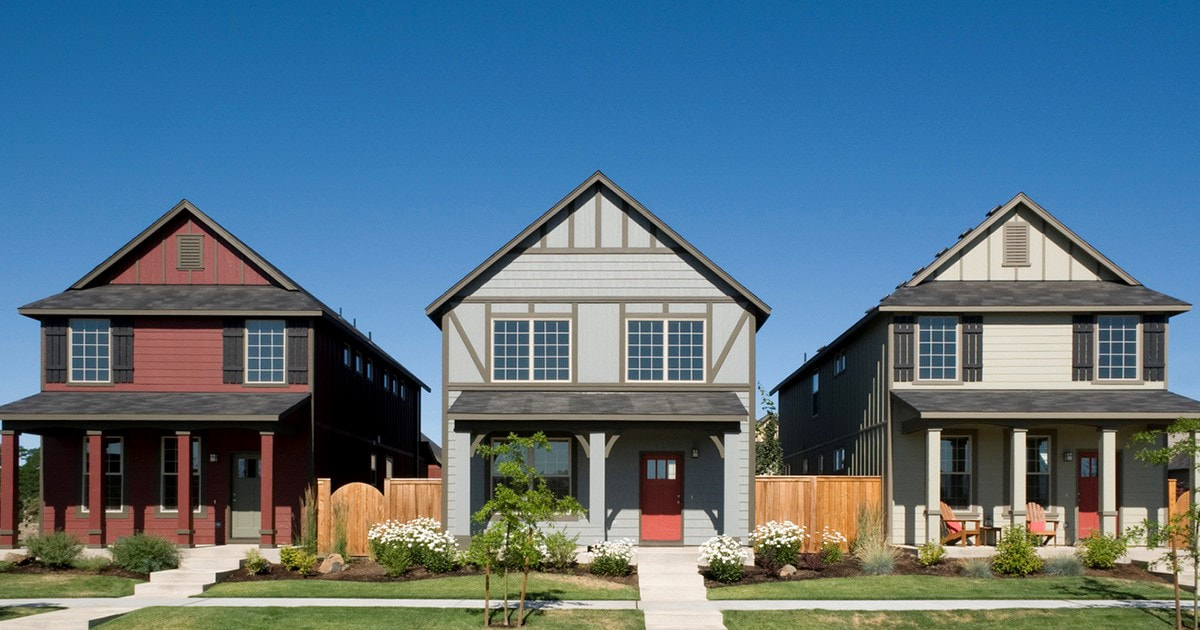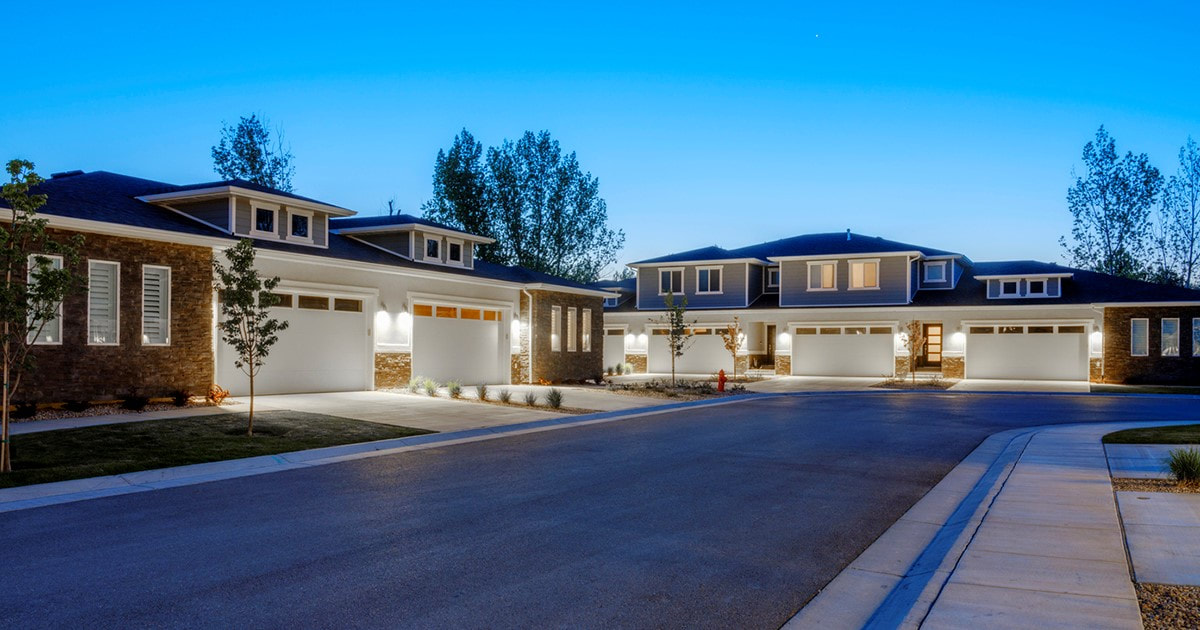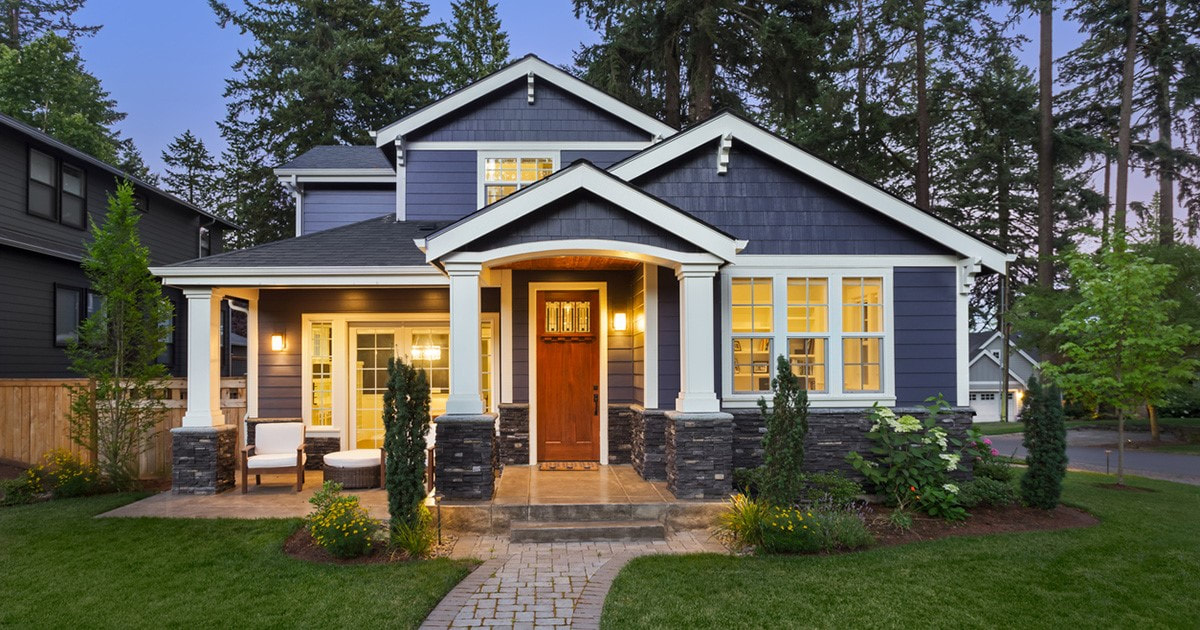What kind of Properties are these?2/24/2020 It is the way the property is used that determines the type of property it is, not what it looks like. Based on the intent of the owner, the property could be a principal residence, income property, investment property or dealer property.
A principal residence is a home that a person lives in. There can be only one declared principal residence. It is afforded certain benefits like deducting the interest and property taxes on a taxpayers' itemized deductions, up to limits. Up to $250,000 of gain for a single taxpayer and up to $500,000 for a married couple filing jointly can be excluded from income if the property is owned and used as a principal residence for two out of the previous five years. An income property is an improved property that is rented for more than 12 months. The improvements can be depreciated based on a 27.5-year life for residential property or 39-years for commercial property. This is a non-cash deduction that shelters income. When the property is sold, the cost recovery is recaptured at a 25% tax rate. An investment property could be an improved property or vacant land that does not produce income and is not eligible for depreciation or cost recovery. The gain on both income and investment properties are taxed at a lower, long-term capital gain rate and are eligible for a tax deferred exchange. Second homes are properties that a taxpayer primarily uses for personal enjoyment but is not their principal residence. For IRS purposes, it is treated as an investment property in that the gain is taxed at preferential long-term rates if it is held for more than 12 months. However, it is not eligible for exchanges because personal use properties are excluded from that benefit. Properties that are built or bought to make a profit are considered inventory and are labeled dealer properties. The gain is taxed at ordinary income rates and they are not eligible for section 1031 deferred exchanges. The financing available differs considerably based on the intent of the owner which determines the type of property. Owner-occupied homes, used as a principal residence, are eligible for low down payment mortgages like VA, FHA, USDA and conventional ranging from nothing down to 20%. A second home, in most cases, requires a minimum of 10% down payment. Investment and Income properties, generally, require 20% or more in down payment with some possible exceptions. There is not any long-term financing available for dealer property.
0 Comments
House-Hacking Rental Property2/3/2020 House-hacking refers to buying a multifamily property on an owner-occupied mortgage, living in one unit and renting the others. If you're thinking about becoming a rental mogul, starting early is an advantage. Not only will you have longer to accumulate a larger portfolio, you can increase the leverage on the first acquisitions if they are owner-occupied. Leverage is the use of other people's money to finance an investment. The higher the loan-to-value, the greater the leverage which can increase the yield. A $200,000 rental property with an 80% LTV at 4.5% for 30 years producing a 16.88% before-tax rate of return would increase to a 23% return on investment by increasing the mortgage to 90%. A typical down payment on an investor property in today's market is 20-25% but, in some cases, a higher loan-to-value is possible. Owner-occupied, multi-unit properties, two to four units, allow a borrower to occupy one of the units and rent the others out. The cash flows from the rental units subsidize the cost of housing for the unit occupied by the owner. VA will guarantee 100% of the mortgage for eligible veterans, while FHA will loan up to 96.5% for qualifying borrowers. Consider a four-unit property was purchased as owner-occupied and the other three units were rented for $800 each. If an FHA loan was obtained, the owner could live for roughly $355 a month after collecting the rent and paying the expenses. Assume the owner lived in it for two years and then, rented out the fourth unit for the same $800 per month. The cash flow would rise to $4,800 a year with a before-tax rate of return of 30% based on a 2% appreciation. Rental properties offer the investor to borrow large loan-to-value mortgages at fixed interest rates for up to 30 years on appreciating assets with tax advantages and reasonable control that many other investments don't enjoy.
Some people consider rental properties the IDEAL investment with each letter in the acronym standing for a benefit it provides. It provides income from the rent which many investments do not have. Depreciation is a non-cash deduction from income that increases cash flow. Equity buildup occurs as each payment is made by reducing the principal owed. Appreciation happens over time as the value of the property increases. L stands for leverage that was explained earlier in this article. You may be able to buy another four unit as an owner-occupant before you need to start using a normal investor's down payment. In the meantime, you could have eight units that are increasing in value while the mortgage balance is decreasing with every payment made. If there is sufficient equity in the properties by the time, you're ready to buy more, you may be able to take cash out of the existing ones to use for the down payments. This can be a great way to turbocharge your net worth by becoming an owner and a real estate investor at the same time. To learn more about rental properties, download the Rental Income Properties guide and/or contact me at to schedule an appointment to meet to discuss the possibilities. An Investment Perspective on a Home12/10/2019 Looking for an investment that will turn $10,000 into $80,000 in seven years? Sound too good to be true? What if I told you that you could live in it every day during that seven years? Would that sound even better?
A $300,000 home purchased today on an FHA loan would have a $10,500 down payment. If it appreciated at 2% annually, which is less than the U.S. average, the future value of the home would be $344,606 in seven years. The unpaid balance on the loan would be $256,350 based on normal amortization which would make the equity in the home $88,256. The annual compound rate of return on the down payment would be 35%. This number sounds so large, that you might start doubting the credibility of this example. Looking at some alternative investments, a ten-year Treasury note is currently paying 1.73%. You can earn 2.1% on a ten-year certificate of deposit. If you could handle the volatility of the stock market and pick the right stock, you might earn 7-10%. There really is no alternative investment that can earn the return that an owner-occupied home can offer while giving you the ability to live and enjoy the home during the holding period. Even if you could find an investment that paid a good return, when you realize the gain, you'll be required to pay income tax, either at long-term capital gains rates or ordinary income. However, a person who has lived in a home for at least two of the last five years can exclude up to $250,000 of gain from their income if they are single and up to $500,000 of gain if the owners are married, filing jointly. A home can certainly be a place of your own to feel safe and secure, to raise your family, share with friends and build memories. A home could be considered an emotional investment and one that pays big dividends. A home is also a financial investment not just for the reasons mentioned above but also because the equity can be accessed by doing a cash-out refinance or a home equity line of credit. See what your investment might look like by using the Rent vs. Own and giving us a call at . Buy Your Retirement Home Now11/4/2019 Maybe you're not ready to move into it but that doesn't mean that you shouldn't take advantage of the present opportunities to acquire the home you want to live in during retirement. The combination of the low mortgage rates, high rental rates, positive cash flows and tax advantages can help you get it paid for by the time you're ready to move into it.
Your tenant could literally buy your retirement home for you. One idea would be to finance it with a 15-year loan that will have a lower rate than a 30-year loan and it will obviously be paid for in half the time. With every monthly rental check from your tenant, you make the payment on the mortgage which includes a portion that reduces debt and builds equity. Even if you don't have the home paid for by the time you retire, your equity will be larger. Consider you sell your current home which could be paid for by then when you are ready to move into this retirement home. Taxpayers can exclude up to $500,000 of tax-free gain for a married couple. That profit could be used to fund your retirement. Even if you don't retire to this home, it could be a placeholder to control the costs of the home you do move into. For example, you could buy a home in a destination location now, rent it out and build equity in it until you're ready to use it as your principal residence. That home would have kept pace with other homes in the area so that you would not be priced out of the market you want to retire to. With home prices and mortgage rates certain to rise, this may be one of the best decisions you can make. We want to be your personal source of real estate information and we're committed to helping from purchase to sale and all the years in between. Contact us if you'd like to talk about the idea or if you need a recommendation of real estate professional in another city. Want to be a Landlord?9/16/2019 Real estate has consistently been one of the highest rated investments available to individuals. TV shows certainly make rentals look easy and you may even know someone who has made a lot of money with them. Possibly, the thought has crossed your mind that if they can do it, you can too.
Before you contract for your first investment, ask yourself some questions that could save you time and energy. Not all people have the time, the inclination or even the skill to manage property. Landlords need to be good business people who can maximize revenue and minimize expenses. If investors don't have the skills and talent to handle some of the repairs, they at least need to know reputable and reasonable service professionals. Another important element is to be familiar with the state and local landlord tenant laws. You'll need to know what are allowable security deposits and where the money can be held. Knowing how long you have to return it to a tenant is important and what to do if you plan to keep all or part of it for damages done. It is important to know about the eviction process and how fair housing applies. If you decide that you may not be cut out for being a landlord, it won't eliminate investing in rentals. It does mean that you will need to engage a property management company who is capable of dealing with all aspects of the process. The peace of mind and convenience will cost you a fee, usually a percentage of the rent collected. They can handle finding a tenant, doing the background check and writing the lease but there will be an additional fee for that service. Even though your expenses will be higher with a property manager, with their experience, they should be able to help you lease the property for more money than you can get and will probably have service providers to do the work needed for less. Occasionally, rental property requires out of pocket expenses for repairs and improvements which is like making another capital contribution. As equity builds in a rental property due to appreciation and principal reduction, the owner does have the option to take cash out of the investment either to pay additional expenses or to use any way the owner wants. Pulling equity out of a rental doesn't even trigger a taxable event. Single-family homes and up to four-unit buildings offer an investor the opportunity to get a high loan-to-value mortgage at a fixed interest rate for 30 years on appreciating assets with tax advantages and reasonable control compared to other alternative investments. Many investors like the fact that you can borrow to purchase a rental investment where many other investments require cash. The use of borrowed funds can create an advantage called leverage. Assume you paid cash for a $100,000 home that generated $7,000 income after the rent was collected and expenses were paid. Divide the value of the home into the income and it would earn 7%. If you decided to put an $80,000 mortgage on it at 5% interest, the interest expense would be $4,000 leaving only $3,000 income. However, at that point, you'd only have $20,000 invested in the property. Divide the cash invested into the income and the rate of return would increase to 15%. This is a simple example of leverage showing that borrowed funds can increase an investor's yield on a property. Rental property can be an excellent investment when it is treated like the business that it is. Knowledge of the investment will reduce the risk and enhance the opportunity to make a profit. Some investors consider their rental income as "mailbox money" because each month, they go to their mailbox and they have money being sent to them by their tenants. The benefits of rental property can easily outweigh risk involved. Contact me for more information on rental properties and the option to be the landlord or to delegate it to a property manager. Jennifer R. Rhodes (R), BIC RB-22809 (808) 345-6192 [email protected] AuthorRead helpful articles and real estate resources shared on behalf Realtor® Broker, BIC Jennifer R. Rhodes of Premier Island Properties LLC Archives
June 2020
Categories
All
|
|
RB-22237
|
|






 RSS Feed
RSS Feed
